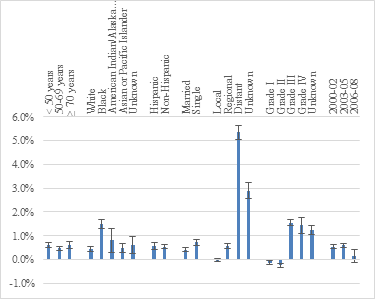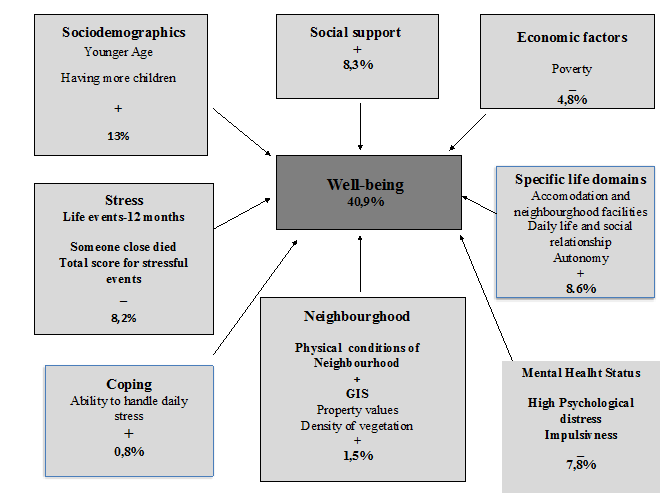Day 1 :
Keynote Forum
Ray M Merrill
Brigham Young University, USA
Keynote: Conditional survival among female breast cancer patients in the United States
Time : 09:15-09:55

Biography:
Ray Merrill is a Professor in the Department of Health Science at Brigham Young University. He joined the faculty in 1998, following employment as a Mathematical Statistician in the Applied Research Branch at the National Cancer Institute. His research interests include chronic disease epidemiology, social determinants of health, and program planning and evaluation.
Abstract:
The relative cancer survival rate may be more meaningful to patients because it indicates the chance they will not die from the specific disease. This measure can be further tailored to patients by updating it according to time already survived and for selected personal characteristics. In the current study, conditional relative survival for female breast cancer is presented, based on cases diagnosed during 2000-2008 and followed up through 2013, using population-based data from the Surveillance, Epidemiology and End Results (SEER) program of the National Cancer Institute. Five-year relative survival improved from 89% at diagnosis to 93% (4.9%) for patients who had already survived 5 years. Five-year relative survival was 98% for local disease, 85% regional disease, and 30% for distant disease; 100% for Grade I, 94% for Grade II, 81% for Grade III, and 80% for Grace IV; 90% for Whites, 78% for Blacks, 82% for American Indians/Alaska Natives, and 91% for Asians; and 93% for married and 85% for singles. Improvement in 5-year relative survival from diagnosis to five years already survived was -1.1% for local disease, 3.2% regional disease, and 91.4% for distant disease; -0.9% for Grade I, -0.7% for Grade II, 11.4% for Grade III, and 14.2% for Grace IV; 3.9% for Whites, 13.4% for Blacks, 8.8% for American Indians/Alaska Natives, and 3.5% for Asians; and 2.8% for married and 6.8% for singles. Age and ethnicity had little influence on conditional relative survival. The association between 5-year relative survival and time already survived within stage groups remains similar after adjusting for age, race, ethnicity, marital status, and tumour grade.

Recent Publications
1. Merrill RM, Hunter BD. Conditional survival among cancer patients in the United States. Oncologist 2010;15(8):873-82.
2. Hieke S, Kleber M, Konig C, et al. Conditional survival: A useful concept to provide information on how prognosis evolves over time. Clin Cancer Res 2015;21(7):1530-6.
3. Tao L, Gomez SL, Keegan TH, et al. Breast Cancer Mortality in African-American and Non-Hispanic White Women by Molecular Subtype and Stage at Diagnosis: A Population-Based Study. Cancer Epidemiol Biomarkers Prev 2015;24(7):1039-45.
4. Chen L, Li CI. Racial disparities in breast cancer diagnosis and treatment by hormone receptor and HER2 status. Cancer Epidemiol Biomarkers Prev 2015;24(11):1666-72.
5. Baquet CR, Mishra SI, Commiskey P, et al. Breast cancer epidemiology in blacks and whites: disparities in incidence, mortality, survival rates and histology. J Natl Med Assoc. 2008;100(5):480-88.
6. Iqbal J, Ginsburg O, Rochon PA, et al. Differences in breast cancer stage at diagnosis and cancer-specific survival by race and ethnicity in the United States. JAMA 2015;313(2):165-73.
7. Brandt J, Garne JP, Tengrup I, et al. Age at diagnosis in relation to survival following breast cancer: a cohort study. World J Surg Oncol 2015;13:33.
8. Doty MM, Beutel S, Rasmussen PW, et al. Latinos have made coverage gains but millions are still uninsured. The Commonwealth Fund Blog, April 27, 2015.
9. Aizer AA, Chen MH, McCarthy EP, et al. Marital status and survival in patients with cancer. J Clin Oncol 2013;31:3869-76.
10. Gomez SL, Hurley S, Canchola AJ, et al. Effects of marital status and economic resources on survival after cancer: A population-based study. Cancer 2016;122:1618-25.
11. Sammon JD, Morgan M, Djahangirian O, et al. Marital status: a gender-independent risk factor for poorer survival after radical cystectomy. BJU Int 2012;110(9):1201-9.
12. Zhang J, Gan L, Wu Z, et al. The influence of marital status on the stage at diagnosis, treatment, and survival of adult patients with gastric cancer: a population-based study. Oncotarget 2016; Epub ahead of print.
Keynote Forum
Jean Caron
McGill University, Canada
Keynote: What could improve the quality of life and well-being of the population?
Time : 09:55-10:35

Biography:
Jean Caron studies the mental health of populations, the assessment of mental health services and the validation of psychometric instruments. He joined the Psychosocial Research Division of the Douglas Mental Health University Institute in 1998 and became an Associate Professor of Psychiatry at McGill University. He currently leads the Canadian Institutes of Health Research Team in Social and Psychiatric Epidemiology. He is also an associate researcher at the Institut de Santé Publique of the Université de Montréal and the Instituto de Saude Colletiva of the Federal University of Bahia in Brazil. His recent studies have identified determinants of psychological distress quality of life and well-being among different populations. Jean Caron’s research has received national and international recognition. He was a visiting professor in the Department of Social Psychology at the University of Seville, in Spain. He is a consultant in social and psychiatric epidemiology to the Public Health Agency of Canada, Statistics Canada, the Quebec Department of Public Health, and the U.S. National Institutes of Health.
Abstract:
Mental health is more than the absence of mental illness or mental disorders. It constitutes a form of complete well-being and favors our capacity to enjoy life and to face the challenges we confront. Quality of life and well-being are important indicators of mental health, so it is important to know the parameters affecting them, in order to develop programs of mental health promotion. After more than 25 years of research on quality of life and well-being of different populations: general population, economically disadvantaged populations, people with mental disorders and their families, we will present the results of research on these populations. We will also present the main parameters related or that predict the quality of life and well-being through important research identified by a literature review.
Fig.1- Predictors of Well-Being of general population
Recent Publications
1-Moulin, F., Keyes, C., Liu, A., Caron, J. (2017). Predictors of well-being in Montreal. Community Mental Health Journal doi:10.1007/s10597-017-0080-4.
2- Monson, E., Caron, J., McCloskey, K., & Brunet, A. (2017). Longitudinal Analysis of Quality of Life Across the Trauma Spectrum. Psychological Trauma: Theory, Research, Practice, and Policy. Doi.org/10.1037/tra000254.
3- Doré, I., Caron, J. (2017). Santé mentale : concepts, mesures et déterminants. Santé mentale au Québec 42 (1), 125-146.
4- Whitley, R., Wang, J., Fleury, M. J., Liu, A., & Caron, J. (2016). Mental Health Status, Health Care Utilisation, and Service Satisfaction among Immigrants in Montreal: An Epidemiological Comparison. The Canadian Journal of Psychiatry, 0706743716677724.
5- Perreault, M., Touré, E. H., Perreault, N., & Caron, J. (2016). Employment Status and Mental Health: Mediating Roles of Social Support and Coping Strategies. Psychiatric Quarterly, 1-14.
Keynote Forum
Wolfgang Seger
Health Advisory Board, Germany
Keynote: The Need to Enrich the Instrument Box of Public Health Statistics: Merger the Bio-Medical and the Bio-Psycho-Social Disease Model!
Time : 10:50-11:30

Biography:
Wolfgang Seger has worked as a doctor of medicine at the Freie Universität Berlin in 1977 and received his license as a physician in 1978. Afterwards, he was initially a research assistant at the Institute of Clinical Radiology at Hanover Medical University. After working at various clinics, he opened his main practice in internal medicine/gastroenterology in Bad Pyrmont in 1985 and was a consultant for the operative therapy of two clinics. From 1989 to 1991, Seger was a senior physician at the Lorch Social Medicine Clinic, and until 1994 he was the senior physician of the Social Medicine Department of the LVA Oldenburg-Bremen. In 1994 Seger became a senior physician of the medical service of the health insurance of Lower Saxony (MDKN) and in 1997 his deputy managing director. In 1998 the University of Bremen was appointed honorary professor for rehabilitation medicine.
Abstract:
Socio-political and economic Health Care decisions are often made on the basis of disease statistics alone. However, due to the changing panorama of diseases taking place in our century, especially healthcare of chronically diseased persons is often going along with impairing and cost-intensive, life-long concomitant personal and insurance-straining sequelae like rehabilitation, psycho-social assistance, sick-benefits, invalidity pension or long-term care. These impacts must be considered simultaneously for appropriate decisions. In social welfare states legislature is increasingly following the Bio-Psycho-Social Disease Model instead of the Bio-Medical Disease Model alone, aiming to achieve an inclusive society and putting into effect the Convention on the Rights of Persons with Disabilities. Therefore time has come to merger both disease models. A merger of the two underlying WHO classifications, ICD and ICF, is overdue to enrich the instrument box of public health statistics for political decision makers

